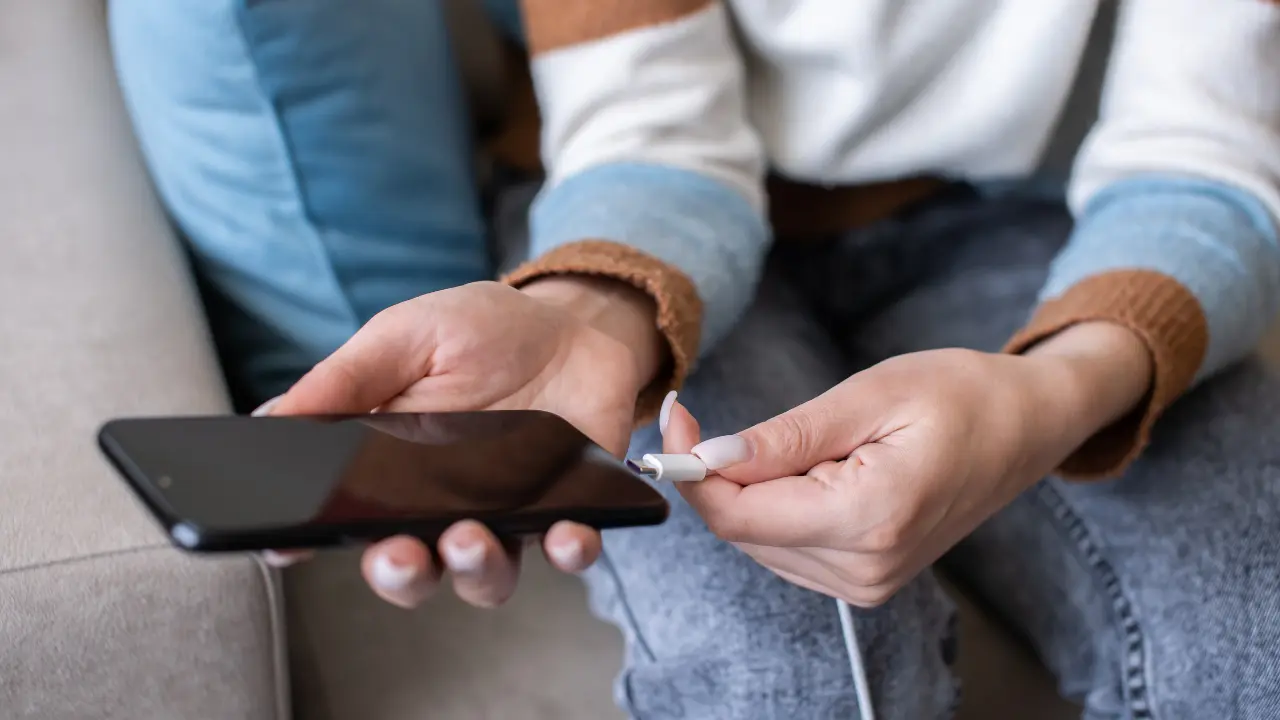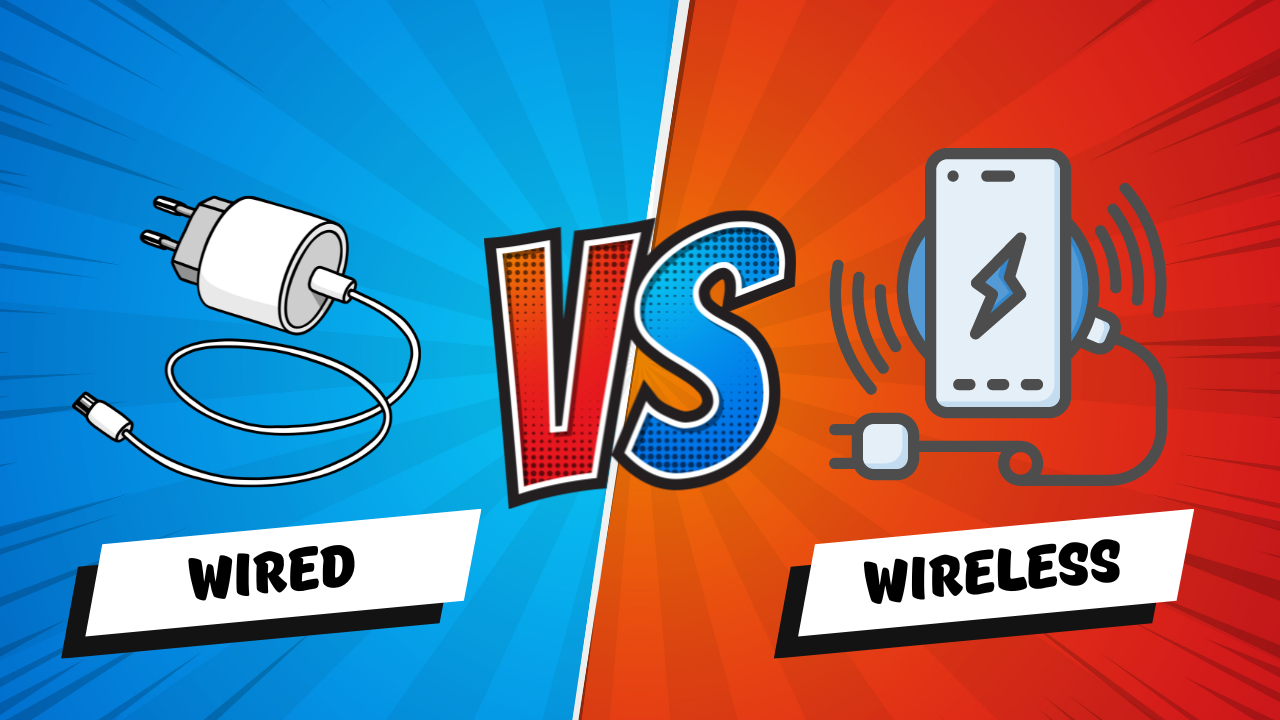When it comes to charging your phone, the debate between wired and wireless solutions is more relevant than ever. With technological advancements, both methods offer distinct advantages and limitations. This article will explore the benefits and drawbacks of wired and wireless chargers, helping you determine which option best suits your needs.

Wired Charging: A Traditional Approach
Wired charging is the most established and familiar method of powering up your devices. It involves connecting your phone to a power source using a physical cable. Typically, this is done through USB cables (such as USB-A, USB-C, or Lightning) and a corresponding wall adapter or power bank.
Advantages of Wired Charging
- Faster Charging Speeds : Wired chargers generally offer superior charging speeds. Thanks to advancements like USB Power Delivery (USB-PD) and Qualcomm Quick Charge, many wired chargers can deliver significant power quickly. For instance, some can charge a phone to 50% in about 15 minutes.
- Reliability : Wired connections are straightforward and reliable. There’s no need to worry about proper alignment or positioning, as long as the cable is properly connected, charging will commence without issues.
- Cost-Effectiveness : Wired chargers are usually less expensive than wireless options. USB cables and wall adapters are commonly available and typically cost less than their wireless counterparts.
- Universal Compatibility : Most phones and other devices come with a wired charger in the box, and the cables used (USB-A, USB-C, Lightning) are broadly compatible with a wide range of devices and accessories.
Disadvantages of Wired Charging
- Cable Clutter : Wired setups can lead to clutter, with cables often becoming tangled or frayed. This can be particularly inconvenient if you have multiple devices or charging needs.
- Limited Mobility : The physical connection restricts the movement of your phone. If you want to use your phone while it charges, the cable can be a hindrance.
- Wear and Tear : Frequent plugging and unplugging can lead to wear and tear on both the cable and your phone’s charging port. Over time, this can cause connectivity issues or damage.
Wireless Charging: A Modern Solution

Wireless charging utilizes electromagnetic fields to transfer energy between a charging pad and your phone, eliminating the need for physical cables. It offers a different charging experience compared to the traditional wired method.
Advantages of Wireless Charging
- Convenience: Wireless charging offers unparalleled convenience. You simply place your phone on a charging pad, and charging begins. This eliminates the need for fiddling with cables and connectors.
- Reduced Wear and Tear : Without physical connectors, there’s less risk of damage to your phone’s charging port. This can be beneficial in maintaining your phone’s long-term durability.
- Aesthetics : Wireless chargers often have a sleek, minimalist design that can be more aesthetically pleasing. They help reduce cable clutter on your desk or bedside table.
- Ease of Use : Many modern wireless chargers support fast charging, making them as efficient as wired solutions in some cases. Placing your phone on a pad is generally simpler and more intuitive.
Disadvantages of Wireless Charging
- Slower Charging Speeds : Wireless charging typically charges devices more slowly compared to wired options. Although advancements in technology have improved this, it can still be slower, especially for older wireless chargers.
- Alignment Issues : Proper alignment is crucial for effective wireless charging. If your phone isn’t positioned correctly on the charging pad, charging may be intermittent or fail.
- Heat Generation : Wireless charging can generate more heat than wired charging. Excessive heat can potentially affect battery health over time.
- Higher Costs : Wireless charging pads tend to be more expensive than wired chargers. Additionally, you might need multiple pads if you want to charge your device in various locations.
Making Your Choice
Choosing between wired and wireless charging depends on several factors:
- Charging Speed : If you prioritize fast charging, wired options are usually superior. However, if you’re willing to trade off a bit of speed for convenience, wireless charging might be acceptable.
- Usage Habits : Consider how you use your phone. If you often need to use it while it’s charging, wireless might be more convenient. Conversely, if you prefer a quick and reliable charge, wired might be better.
- Budget : Wired chargers are generally more affordable. If cost is a significant factor, wired solutions might be more economical.
- Compatibility : Ensure your device supports the charging method you choose. Most modern phones support both wired and wireless charging, but checking compatibility is always a good idea.
- Charging Environment : Think about where you charge your phone. Wireless chargers are excellent for stationary setups like a desk or bedside table, while wired chargers are practical for travel or on-the-go use.
Conclusion
Both wired and wireless charging methods have their strengths and weaknesses. Wired charging excels in speed and reliability, while wireless charging offers convenience and a more streamlined setup. Your decision will largely depend on your individual needs, lifestyle, and budget.
If you value fast charging and reliability, a wired charger might be the best choice. If convenience and reducing physical wear on your device are your priorities, then a wireless charger could be more suitable. Assess your needs, preferences, and budget to make an informed decision that enhances your charging experience.

